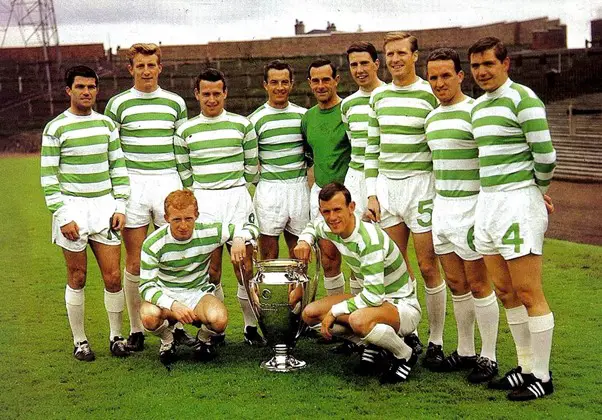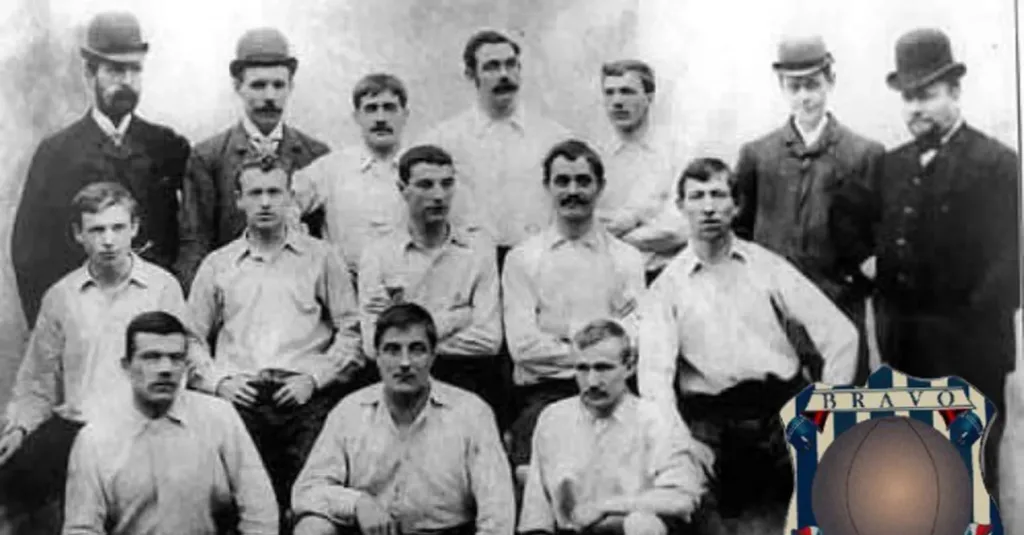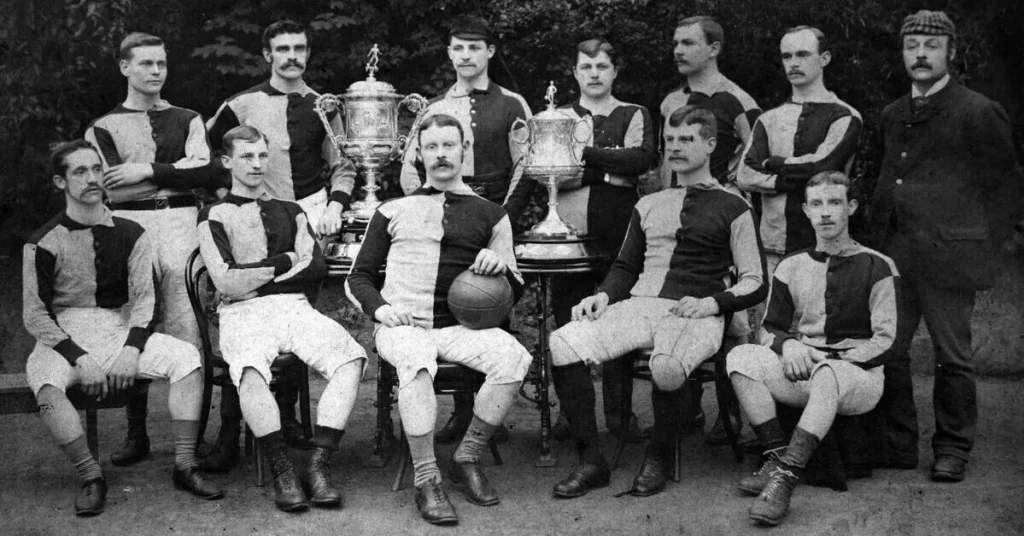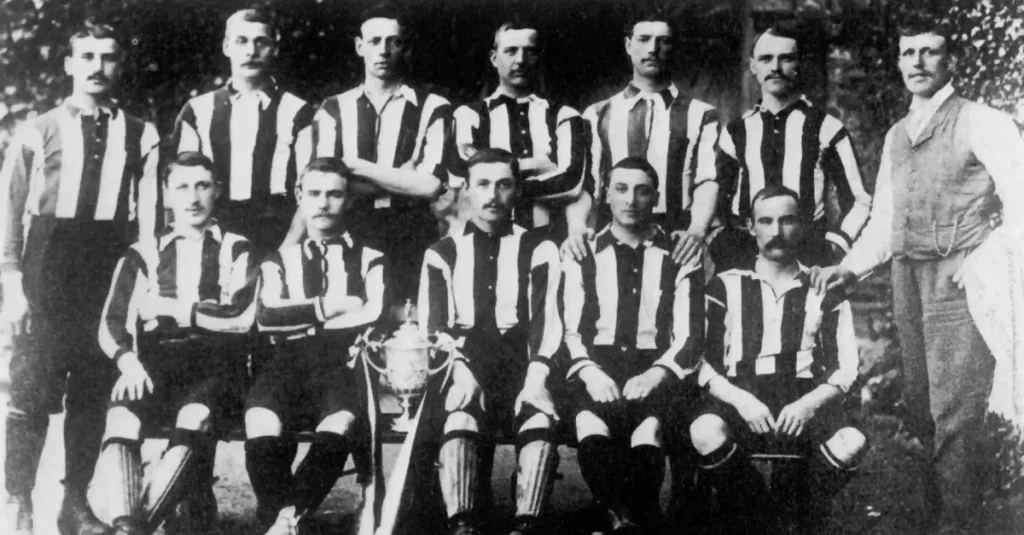On May 25, 1967, Celtic Football Club achieved an unforgettable milestone in their illustrious history. They secured a momentous victory by defeating Inter Milan 2-1 in Lisbon, becoming the first British team to win the European Cup.
And now, in 2023, on the club’s 56th anniversary of this incredible triumph, we look back on one of the greatest starting XIs in British football history.
Jock Stein and His Unusual Suspects
This achievement was even more remarkable because all 11 players on the field that night hailed from within a 30-mile radius of Parkhead. These local lads, forever known as the ‘Lisbon Lions,’ etched their names into Celtic folklore.
During the 1966/67 season, Celtic’s success was unmatched. They triumphed in every competition available to them, including the Scottish League, the Scottish Cup, the Scottish League Cup, the Glasgow Cup, and, of course, the ultimate prize, the European Cup.
Notably, they set a record by scoring an impressive total of 196 goals, showcasing their commitment to attacking football under the leadership of the legendary Jock Stein.
Celtic did not intend to pursue a European trophy at the beginning of the season. Their squad mainly consisted of players from the local Glasgow area, and it was unclear if they had the necessary skills and experience to excel in European competitions. Simultaneously, Manager Jock Stein, who had previously travelled to Italy to observe the tactics of Inter Milan manager Helenio Herrera, was secretly planning a victory.
Road to the 67’ European Final
Celtic emerged victorious in the first round of the European Cup, defeating FC Zurich 5-0 throughout two matches. Joe McBride, Lennox, and Chalmers were the goal scorers, securing a 3-1 advantage for the Hoops ahead of their second leg against FC Nantes. Johnstone, Chalmers, and Lennox found the back of the net at Parkhead, leading Stein’s Hoops to a convincing 6-2 aggregate victory.
In the quarter-finals, Celtic faced Serbian side FK Vojvodina. Although they suffered a 1-0 defeat in the away leg, goals from Chalmers and McNeill proved sufficient to orchestrate a comeback on home soil. Following a remarkable 3-1 triumph over Dulka Prague at Parkhead, Celtic secured their place in the final against Inter Milan.
In today’s game, punters flock to the most popular bookmakers around the UK to receive added excitement to the sport; believe it or not, it wasn’t so different back then. However, one key difference was the odds, and despite being huge underdogs in the public eye, Inter and Celtic held even odds at 10/11 before the game, and a correct score prediction of 2-1 in favour of Celtic was available for 9/1.
The Final
Their success was remarkable, especially considering the prevailing expectation that Inter, who had previously won the European Cup in 1964 and 1965, would secure their historic third consecutive victory.
Led by the legendary Helenio Herrera, the Nerazzurri had already claimed three Serie A titles from 1962 to 1966, narrowly missing out on a fourth in a play-off against Bologna. Additionally, they had also experienced triumph in the Intercontinental Cup.
But their unsuspecting opponents were about to deliver 90 minutes of football that would etch itself into the history books.
| “We did it by playing football; pure, beautiful, inventive football.” |
Jock Stein, in Lisbon, 1967.
In any game of football, the final scoreline ultimately reigns supreme. However, the statistics from the 1967 European Cup final truly highlight Celtic’s dominance, which may surprise those who didn’t witness the match and assumed it was a closely contested affair.
Celtic outshone Inter Milan with an impressive 45 shots, while their opponents managed a mere 3. Of those attempts, Celtic had 16 shots on target compared to Inter’s 3. Additionally, Celtic had 29 shots off target, including three unfortunate strikes against the woodwork. Possessing the ball for 64% of the game, Jock Stein’s side maintained significant control. They earned 10 corner kicks, while Inter failed to obtain a single one. Celtic also demonstrated their attacking prowess by delivering 40 crosses into the Inter penalty area, whereas their opponents managed a mere 4. Not only did Celtic excel in their offensive play, but their passing game was also superior. They completed 310 successful passes, in contrast to Inter’s 224. Moreover, Celtic only passed back to the goalkeeper on 7 occasions, a tactic which was permitted during that era, while Inter resorted to 20 passbacks.
Final Score: Celtic 2 – Inter Milan 1
The Importance of ’67
Celtic’s triumph in the European Cup final against Internazionale, the reigning champions of Italy, can be regarded as Scotland’s most remarkable accomplishment in the realm of sports. At that time, just as it is today, football held the position of the most widely loved sport globally in terms of both participation and commercial value.
The fact that a team comprised solely of players from the western region of Scotland, without any financial or sports science privileges, could emerge victorious in the foremost football competition in the world was deemed highly unlikely at the time. Nowadays, such a feat would be considered nearly impossible.
In the eyes of Celtic and their fans, 1967 marked a significant moment when the underprivileged members of Scottish society emerged victorious on the football pitch.
The tale of the “Lisbon Lions” has been widely celebrated during its 25th and 50th anniversaries, serving as an enduring connection for multiple generations of Celtic supporters. It not only symbolises Celtic’s origins and principles but also resonates with the historical backdrop of the Great Irish Starvation, the experiences of Catholic Irish immigrants in Scotland, and the extensive Irish diaspora across the globe.




